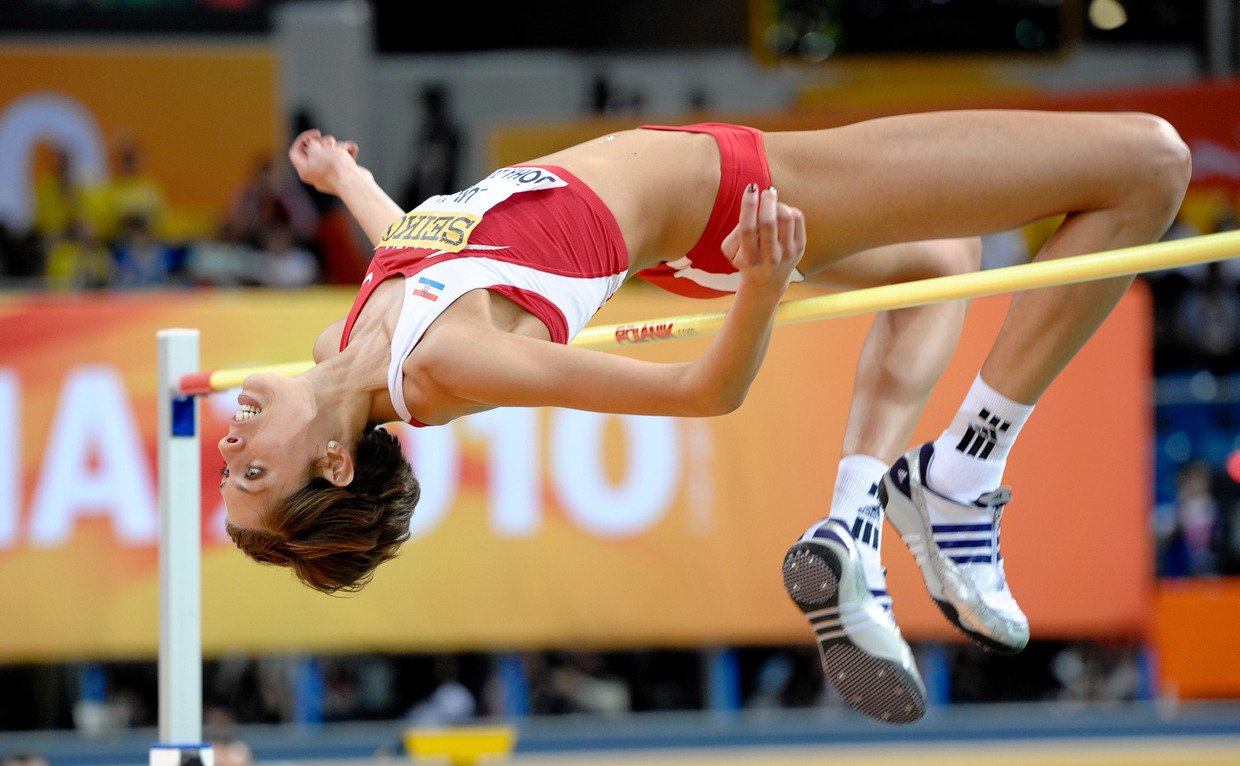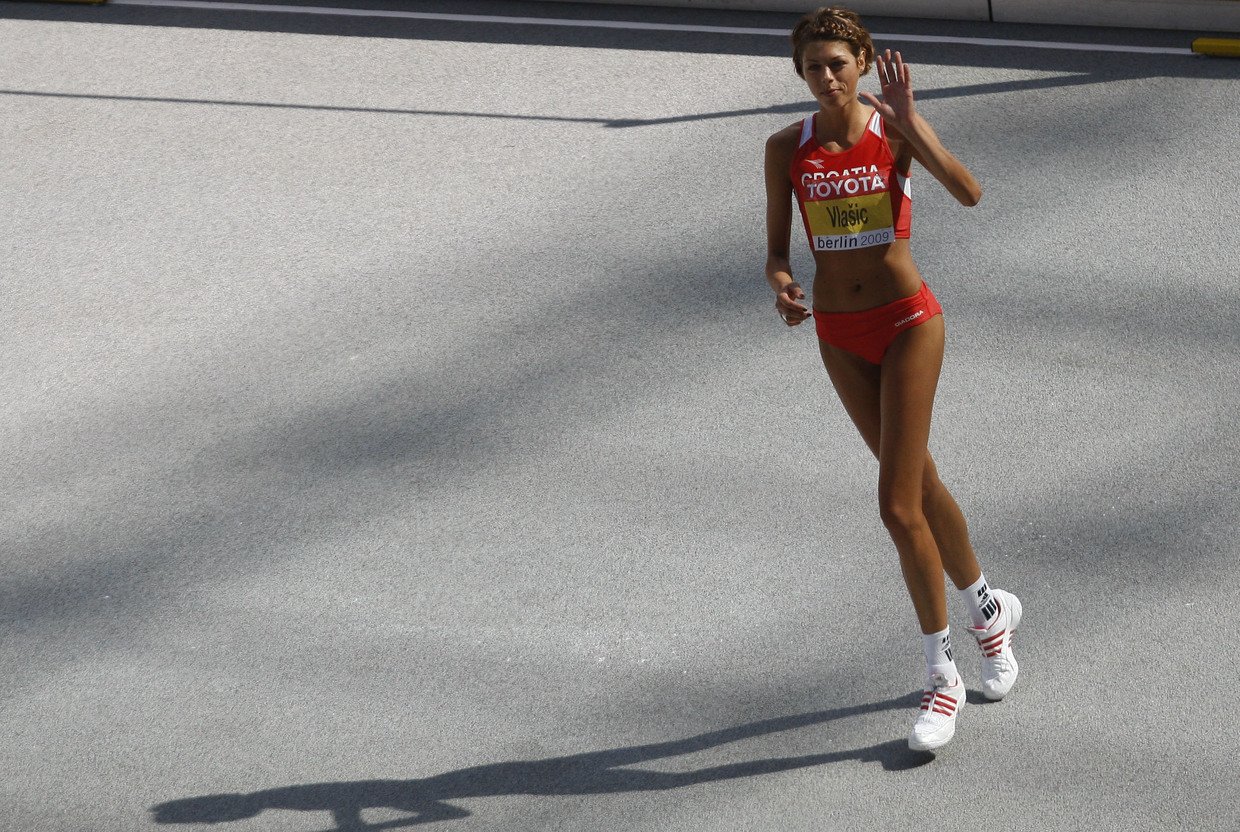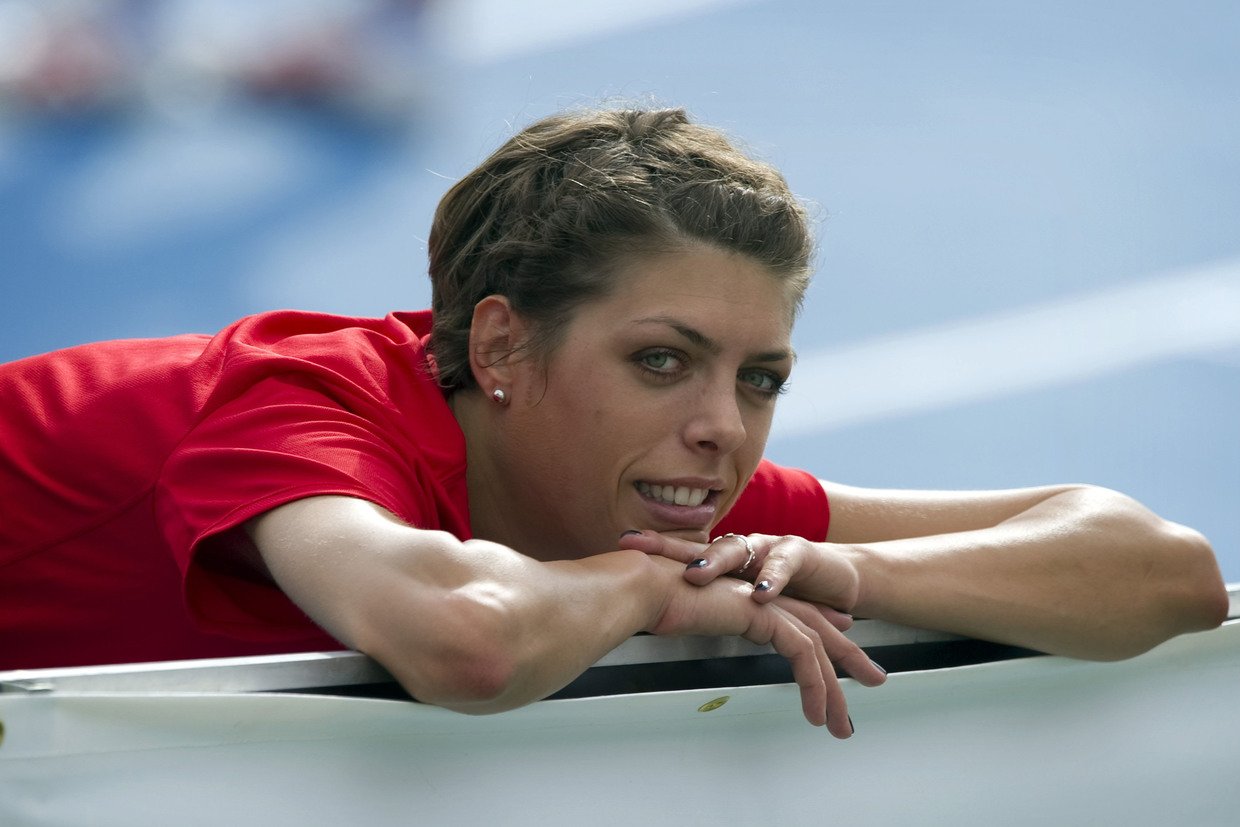Russia’s Lasitskene and Ukraine teen sensation Mahuchikh can beat longstanding high-jump world record, says Croatian icon Vlasic

Croatian high jump legend Blanka Vlasic has tipped Russian star Maria Lasitskene and Ukrainian teen sensation Yaroslava Mahuchikh as two women who could finally beat the world record which has stood for over 33 years.
In an interview with RT, recently retired two-time world champion Vlasic discussed the current generation of stars taking the women’s high-jump forward today, as well as her own disappointment after finishing second at the 2008 Beijing Olympics and the fears she felt when deciding to call time on her career after dedicating much of her life to athletics.
The 37-year-old revealed that it took her more than four years to finally announce retirement as she struggled with injuries and surgery, with the Rio Games in 2016, where she claimed bronze, being her last major event on the international circuit.
“I was trying to let it go,” Vlasic told RT. “No, I think that would be a very smart decision to retire after Rio but, I guess, after you win an Olympic medal, it’s very hard to give up that moment.
“So I wanted to try to come back and I gave myself two years after Rio to try to come back. I went to a lot of rehabilitation treatments, training as well but it was just very difficult to come back after that kind of surgery and jumping with these problems that I had in Rio, so I made things much worse than before.

“Maybe two years after Rio I started to consider retirement. But you know, for an athlete it’s very hard to think about retirement because this is our whole life.”
Vlasic admitted that the prospect of retirement had frightened her, and she needed time to prepare herself for a new life without sport.
“The first time when I thought about retirement I would have a panic attack. I knew I need to work with that. So every day I was thinking about it and every day it came closer to me,” she said.
“Athletes – we have two careers in our life: we need to retire early because you can’t jump until 60 or do any kind of sport until 60. Eventually you need to face the fact that you can’t be an athlete anymore, so it’s very important to prepare yourself.
“That’s what I did – I prepared myself and now I’m relaxed, I don’t have any wish to look backwards, I don’t have any regrets and I think it’s the most important thing – to have a clear mind once you finish you career,” she added.
The two-time Olympic medalist recalled her performance at the 2008 Beijing Games, where she had been the pre-tournament favorite, confessing that she had treated her second-place finish behind Belgium’s Tia Hellebaut as a failure.

“You know it’s much easier when you lose at the World Championships because in athletics the Worlds are every two years, and when you lose in the Olympic Games you think, ‘Oh, the next ones are in four years’. And four years is a long period when anything can happen. That was actually true because the next Olympic Games in London I was injured – like it happened.
“To be honest I was very disappointed because I had it there – both of us jumped 2.05m so I lost by attempts and it was the best high jump final in history. Never ever before or after until I don’t know what the future will bring, 2.05 wasn’t enough for a gold medal. So I was so close and then.
“Yet I took a silver home. Of course that evening I was disappointed but now with a clear head I just can’t say it’s a failure because it was such a great performance, it was such a great night for high jump, a great fight with Tia so I don’t have any regrets now. But that night was definitely one of the hardest nights in my career,” Vlasic said.
Explaining why she still hasn’t built a family life, Vlasic, who has been training since the age of five, admitted that her personal life had always been secondary to her career.
“I had this strong focus and I guess I never saw anyone around me. Of course I was in love so many times but somehow sport was always my priority and during my career. I wasn’t able to be what I needed to be for other person. I always say it’s a little bit harder for women in sports to have a family during the career. It is possible, of course, and many of women do.

“But let’s say a male athlete doesn’t need to skip practices or competitions. If we want to have children during our career, we need to stop for one or two years and it’s always a much more difficult situation for us.”
Vlasic said that it’s much harder for a female athlete to concentrate on a family life when you have high targets, adding that women need to take a lengthy break if they want to have children.
“We are athletes and we are women, and when the time comes we feel the urge to have a family – we are ready to be patient, we are ready to be everything we need to be for a family. That’s kind of what I feel now. I didn’t feel that 10 or 20 years ago. Of course I was focused on sport but when you are 30 and then 35, you realize that all of these achievements are great – medals and glory that come with it and it’s amazing but that’s not the point of life, if you ask me. I think the point is when you can grow old with somebody,” Vlasic explained.
Vlasic at one point came close to beating the long-standing world record set by Stefka Kostadinova, and with a personal best of 2.08m was just one cm short of matching the Bulgarian, whose mark has stood unbeaten for more than 33 years.
Vlasic suggested, however, that soon the record might be broken by the likes of Yaroslava Mahuchikh of Ukraine or Russia’s three-time world champion Maria Lasitskene.
Also on rt.com Ukrainian teen sensation Mahuchikh clears the bar at 2.06m, threatening to dethrone Maria Lasitskene in women’s high jump“Well, now you have this Ukrainian girl (Yaroslava Mahuchikh). She jumped 2.06 and she’s only 19, I think. Maybe she can do it,” she said.
“Maria (Lasitskene) also has a great chance. I just told my coach last year: ‘You know, she can do it. She can definitely do it.’ It will be very interesting to see those girls fight. I definitely don’t think that jumping world record is impossible. Somebody can jump to 2.10. Maybe it will happen, I don’t know. You know how it is with world records – you can be so close and yet not to get it. So, it’s very hard to predict anything.”













